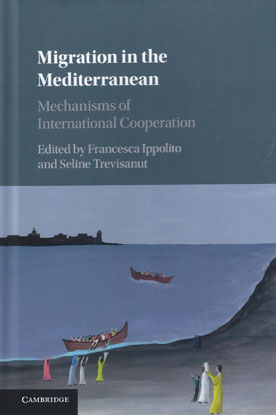
Mediterranean states have developed various cooperation mechanisms in order to cope with the issues that arise from migration.
This book critically analyses how institutional actors act and interact on the international scene in the control and management of migration in the Mediterranean.
It highlights how, even though the involvement of 'universal' international organisations guarantees a certain balance in setting the goals of cooperation mechanisms and buttresses a certain coherence of the actions, the protection of migrants' fundamental rights is still an objective as opposed to a reality, and security imperatives and trends still prevail in the aftermath of the 2011 Arab Spring.